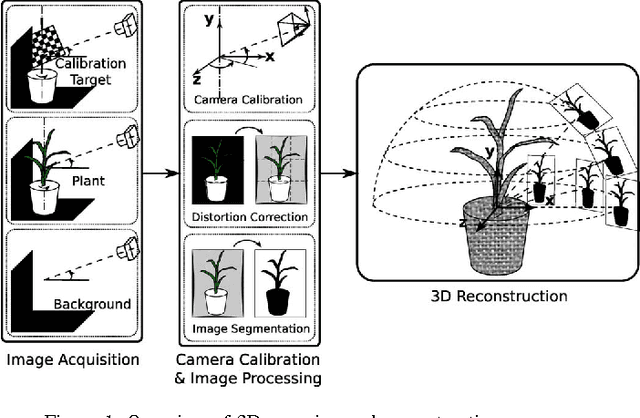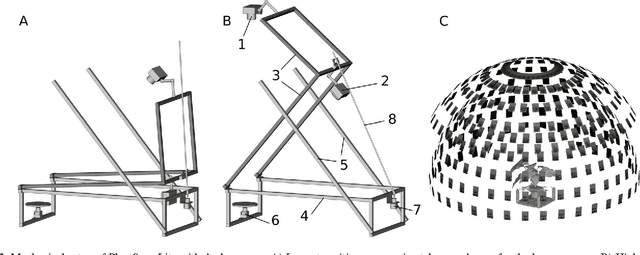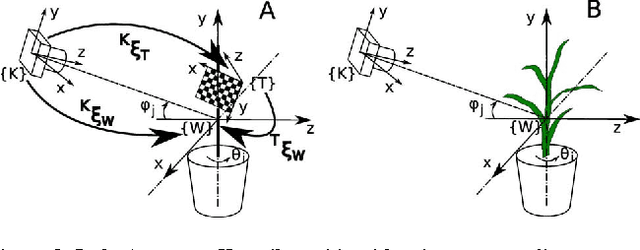3D Scanning System for Automatic High-Resolution Plant Phenotyping
Paper and Code
Feb 26, 2017



Thin leaves, fine stems, self-occlusion, non-rigid and slowly changing structures make plants difficult for three-dimensional (3D) scanning and reconstruction -- two critical steps in automated visual phenotyping. Many current solutions such as laser scanning, structured light, and multiview stereo can struggle to acquire usable 3D models because of limitations in scanning resolution and calibration accuracy. In response, we have developed a fast, low-cost, 3D scanning platform to image plants on a rotating stage with two tilting DSLR cameras centred on the plant. This uses new methods of camera calibration and background removal to achieve high-accuracy 3D reconstruction. We assessed the system's accuracy using a 3D visual hull reconstruction algorithm applied on 2 plastic models of dicotyledonous plants, 2 sorghum plants and 2 wheat plants across different sets of tilt angles. Scan times ranged from 3 minutes (to capture 72 images using 2 tilt angles), to 30 minutes (to capture 360 images using 10 tilt angles). The leaf lengths, widths, areas and perimeters of the plastic models were measured manually and compared to measurements from the scanning system: results were within 3-4% of each other. The 3D reconstructions obtained with the scanning system show excellent geometric agreement with all six plant specimens, even plants with thin leaves and fine stems.
 Add to Chrome
Add to Chrome Add to Firefox
Add to Firefox Add to Edge
Add to Edge